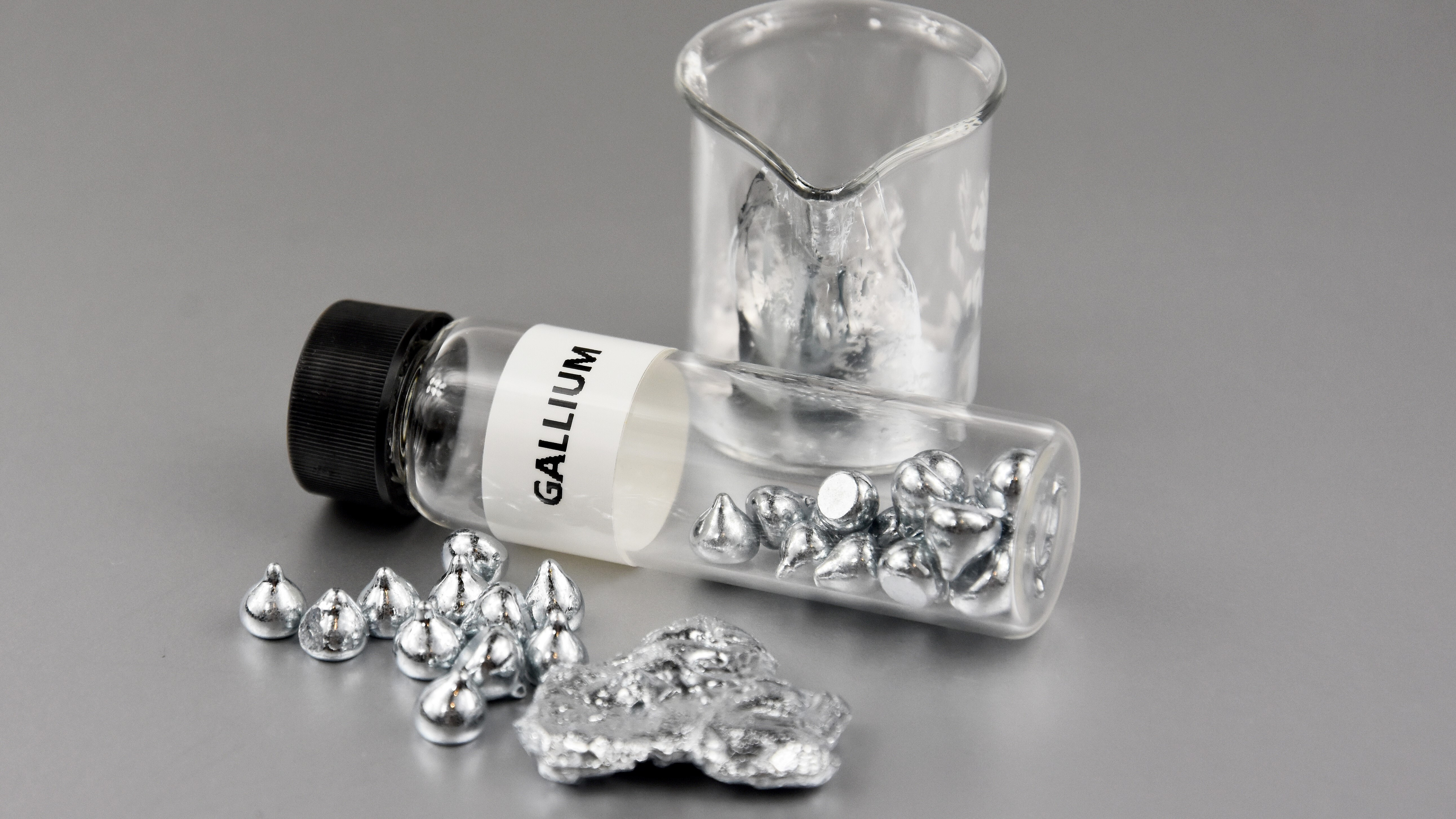Pricing for key chipmaking material hits 13-year high following Chinese export restrictions — China's restrictions on Gallium exports hit hard
Prices rose to $595 per kilogram, a 17% increase over the previous level on December 11

Gallium, a critical metal used in semiconductors, solar panels, and other advanced technologies, has climbed to $595 per kilogram, the highest price since 2011. Trade flows in these small, specialized markets are challenging to monitor, but according to Bloomberg, China is the primary global supplier, accounting for 94% of gallium production. This sharp increase follows China's latest export ban of critical minerals to the United States, including gallium, germanium, and antimony.
The controls are said to be part of China's strategy to maintain its leverage in critical supply chains amidst increasing competition and trade barriers imposed by the U.S. and other Western nations. Officially, the measures aim to ensure legal and justified uses of gallium, but they are also seen as a warning against efforts to curtail China's technological advancement.
While the restrictions do not amount to a full ban, they have created uncertainty, prompting buyers to lock in shipments and leading to price hikes. Gallium prices jumped 17% in a single week in December 2024 and are expected to rise further as global industries scramble to secure alternative sources.
The sudden increase in gallium prices reflects the metal's indispensable role in modern technology. Gallium arsenide, a compound derived from the metal, is widely used in advanced semiconductors and high-performance electronic components. With no readily available substitutes, industries relying on gallium—including consumer electronics, aerospace, and green energy sectors—are under pressure to absorb rising costs.
China’s move is also influencing the broader critical minerals market. The export controls have sparked fears of further restrictions on other strategic resources, leading to heightened efforts in the U.S., Europe, and other regions to reduce dependency on Chinese supplies. However, establishing alternative production is challenging due to the high cost of gallium extraction and processing. Analysts note that ramping up production in regions like Canada or Europe could take years, keeping prices elevated in the near term.
The current situation underscores the vulnerability of global supply chains reliant on critical minerals. For now, industries are grappling with the immediate impact of soaring prices and uncertain supplies. In the long term, the crisis could accelerate investment in alternative sources and recycling technologies, potentially reshaping the global landscape for critical materials like gallium.
Get Tom's Hardware's best news and in-depth reviews, straight to your inbox.

Kunal Khullar is a contributing writer at Tom’s Hardware. He is a long time technology journalist and reviewer specializing in PC components and peripherals, and welcomes any and every question around building a PC.
-
Notton It's called "Comparative Advantage".Reply
It's an economics model and it's why everyone does international trade. -
TheOtherOne Can't wait for the hypocrisy of those who will be totally OK with these restricted countries still buying it from other sources but start shouting China is bad/unethical when they buy restricted GPUs and Chips from other sources as well.Reply -
Hotrod2go World markets allergic to China will have to seek out what places like Australia & their potential for not only Gallium production, but other rare earths essential for state of the art modern technology and renewable energy,Reply -
Gururu These metals are everywhere, just have to invest and find them rather than let other countries slave and poison their own population.Reply -
LeGen_NMO Reply
Agreed, the "Earths" are not "Rare", they are common minerals found all over the world. The challenge is that the Greens block building the plants to refine the ores, justifiably since they are using very old and very nasty processes.Gururu said:These metals are everywhere, just have to invest and find them rather than let other countries slave and poison their own population.
Any time a company tries to enter a mineral field China dominates they drop their official price below cost to put the company out of business so the newer, cleaner processes never get implemented. -
LeGen_NMO Being a retired engineer I was compelled to "do the math". $595 for over 2.2 lbs divided by the 10's of thousands of chips that can be made from 2.2 lbs of the metal means the price impact on chips is negligible.Reply
Just another scare story to invoke advertiser clicks.The cost impact on solar panels will be higher, but I doubt it. Besides most solar panels are made in China, Canada, etc so there is no Gallium export duty applied. The USA is not a 'hot bed' of solar panel manufacture. -
t3t4 (circus music playing quietly in the background)Reply
Come one come all, come on in to see which side has the biggest baddest scariest clowns of them all🙄! -
Just a reminder to everyone, please stay away from any politics in these threads or risk getting locked out of the thread, or worse. There are some riding a little close to the line at the moment.Reply
-
castl3bravo LoL! USA can continue finding proven reserves of important minerals in country. China wants to play a game that cuts both ways...:rolleyes:Reply